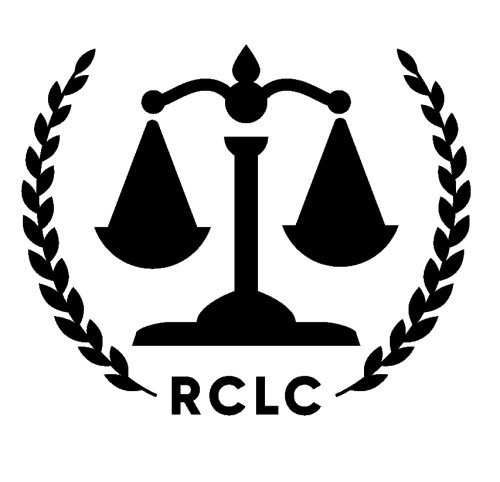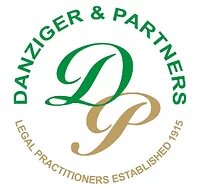Best Social Security Lawyers in Zimbabwe
Share your needs with us, get contacted by law firms.
Free. Takes 2 min.
Or refine your search by selecting a city:
List of the best lawyers in Zimbabwe
About Social Security Law in Zimbabwe
Social Security in Zimbabwe is primarily governed by the National Social Security Authority (NSSA), which administers social security schemes to provide financial security for citizens. The main programs cover pensions, workers' compensation, and insurance for general welfare. These initiatives are designed to ensure adequate support for workers who retire, face disabilities, or require assistance due to work-related injuries.
Why You May Need a Lawyer
While the Social Security system is designed to be accessible, there are several situations where legal assistance may be beneficial:
- Disputes over benefit entitlements or amounts.
- Applications that have been denied, necessitating appeals.
- Complex legal procedures involved in claiming workers' compensation or disability benefits.
- Claiming benefits under special circumstances, such as survivors' benefits.
- Ensuring compliance with current regulations and legal obligations.
Local Laws Overview
Zimbabwe's social security framework is guided by several key pieces of legislation, including:
- The National Social Security Authority Act (1989): Establishes the NSSA and outlines its duties.
- Statutory Instrument 393 of 1993: Implements the Pension and Other Benefits Scheme.
- Statutory Instrument 68 of 1990: Establishes the Accident Prevention and Workers' Compensation Scheme.
These laws ensure that various aspects of social security, including pensions, disability, and injury compensation, are adequately managed. Understanding these laws can be essential when navigating claims or disputes.
Frequently Asked Questions
What is the purpose of the National Social Security Authority?
The NSSA manages Zimbabwe's social security systems, covering old-age pensions, disability, and workers' compensation to ensure financial support and protection for eligible workers.
How can one qualify for pension benefits in Zimbabwe?
To qualify, individuals generally need to have made regular contributions to the NSSA over a specified period and must have reached the statutory retirement age.
Can I appeal if my Social Security claim is denied?
Yes, there is a formal appeals process available for individuals whose claims have been denied, often involving administrative review and potentially legal follow-up.
How are workers’ compensation claims processed?
Claims are submitted to the NSSA, where they are assessed for validity. Upon approval, compensation is determined based on the severity of the injury and loss of earnings.
Are Social Security benefits taxable in Zimbabwe?
Social Security benefits are generally subject to specific tax treatments; however, advice from a tax professional or lawyer is recommended to understand personal situations.
What happens if I continue to work after receiving pension benefits?
Beneficiaries can work while receiving pensions, but certain deductions may apply to ensure fairness in benefit distribution.
How often are Social Security benefits reviewed or adjusted?
Benefits are periodically reviewed, often in response to economic changes or legislative reforms, to ensure relevance and adequacy.
Can I claim benefits on behalf of a deceased relative?
Yes, certain benefits like survivors' benefits are available. The process requires presenting legal documentation proving eligibility.
Where can I find my Social Security number?
The NSSA assigns a unique Social Security number to contributors, which can usually be found on official correspondence or inquiry with the NSSA office.
Is there a special program for disabled individuals?
The Accident Prevention and Workers' Compensation Scheme provides benefits specifically for disabilities resulting from occupational hazards.
Additional Resources
For more information or assistance, consider reaching out to the following resources:
- National Social Security Authority (NSSA): The main body responsible for administering social security.
- Legal Resources Foundation (LRF): Offers legal information and possibly support services.
- Zimbabwe Lawyers for Human Rights (ZLHR): Advocacy group that may provide legal assistance or referrals.
- Ministry of Labour and Social Welfare: Involved in broader social security policy and worker rights.
Next Steps
If you believe you need legal assistance with Social Security in Zimbabwe, consider the following steps:
- Gather all relevant documentation related to your claim or issue.
- Consult with a legal professional specializing in social security for advice and representation.
- Contact local legal aid organizations if financial constraints are a consideration.
- Stay informed about current laws and regulations to understand your rights and obligations thoroughly.
- Initiate the dispute resolution process if necessary, following legal counsel guidance.
Having a clear understanding of your rights and obligations, coupled with professional legal advice, can significantly improve your experience navigating Zimbabwe's social security system.
Lawzana helps you find the best lawyers and law firms in Zimbabwe through a curated and pre-screened list of qualified legal professionals. Our platform offers rankings and detailed profiles of attorneys and law firms, allowing you to compare based on practice areas, including Social Security, experience, and client feedback.
Each profile includes a description of the firm's areas of practice, client reviews, team members and partners, year of establishment, spoken languages, office locations, contact information, social media presence, and any published articles or resources. Most firms on our platform speak English and are experienced in both local and international legal matters.
Get a quote from top-rated law firms in Zimbabwe — quickly, securely, and without unnecessary hassle.
Disclaimer:
The information provided on this page is for general informational purposes only and does not constitute legal advice. While we strive to ensure the accuracy and relevance of the content, legal information may change over time, and interpretations of the law can vary. You should always consult with a qualified legal professional for advice specific to your situation.
We disclaim all liability for actions taken or not taken based on the content of this page. If you believe any information is incorrect or outdated, please contact us, and we will review and update it where appropriate.
Browse social security law firms by city in Zimbabwe
Refine your search by selecting a city.
















